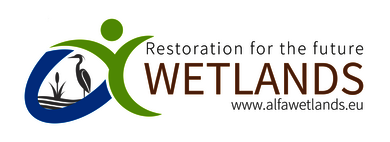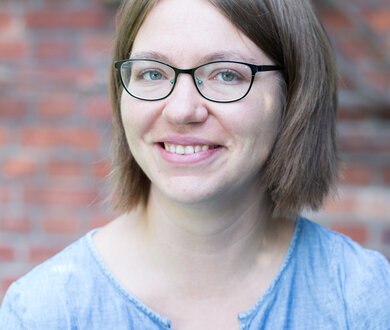ALFAwetlands
Wetland restoration for the future
In the ALFAwetlands project partner institutions from ten European countries aim to improve the geospatial knowledge base of wetlands an evaluate pathways of wetland restoration that incorporate a co-creation process. The project also provides information and indicators for sustainability to maximise climate change mitigation, biodiversity and other benefits.
Wetlands cover 5-8% of the world’s land area and have a huge capacity to sequester carbon (C). Healthy wetlands effectively accumulate highly stable carbon due to water-logged conditions. The EU aims to cut GHG emissions by at least 55% by 2030.This ambition requires new GHG mitigation measures within all sectors including LULUCF sector. Wetlands as carbon rich ecosystems can efficiently contribute to both EU's climate targets and biodiversity strategy. Currently high uncertainty prevails of wetlands’ spatial and cabon sink extent, as well as source estimates and sustainable alternatives in restoration. This hinders the efficient use of wetlands in carbon mitigation and adaptation in the context of other LULUCF mitigation options.
The ALFAwetlands project will advance the state of-the-art on the geospatial knowledge base on wetlands and their use and degradation in Europe. Diverse novel experimental data on wetland ecosystems’ responses to management and restoration regimes under different types of land-use will be acquired and synthesised on biodiversity and other ecosystem services (BES). At the local level, Living Labs (LL) support and integrate interdisciplinary and multi-actor research on ecological, environmental, economic, and social issues. Models will scale up experimental data from LLs to gain understanding of the potential impacts of up-scaled wetland restoration options on BES at the EU level for various policy-relevant time periods and the most policy-relevant CC mitigation and BD targets. It will also assess the societal impacts of wetlands restoration, especially on BES benefits and costs of different restoration approaches and wellbeing impacts at local, national and EU levels.

Places: ca. 20 Living Labs across Europe
Duration: 06/2022-11/2026

Marina Abramchuk marina.abramchuk[at]succow-stiftung.de
Expertise: Vegetation, restoration, Eastern Europe
Tel +49 3834 8354 237
This project has received funding from the European Union’s Horizon Europe research and innovation programme under grant agreement No 101056844.
These are the ALFAwetlands partners:
Austria:
International Institute for Applied Systems Analysis
European Wilderness Society
Belgium:
Research Institute Nature and Forest, Society for Ecological Restoration Europe
Estonia:
University of Tartu
Finland:
Luke – Natural Resources Institute
Finnish Meteorological Institute
France:
French National Center for Scientific Research
Institute for Agriculture, Food and Environment
Germany
Succow FoundationLatvia:
Silava
Lithuania:
Latvian State Forest Research Institute
Netherlands:
Wetlands International
Spain:
Ecological and Forestry Applications Research Centre
University of Barcelona
Sweden:
Stockholm University
